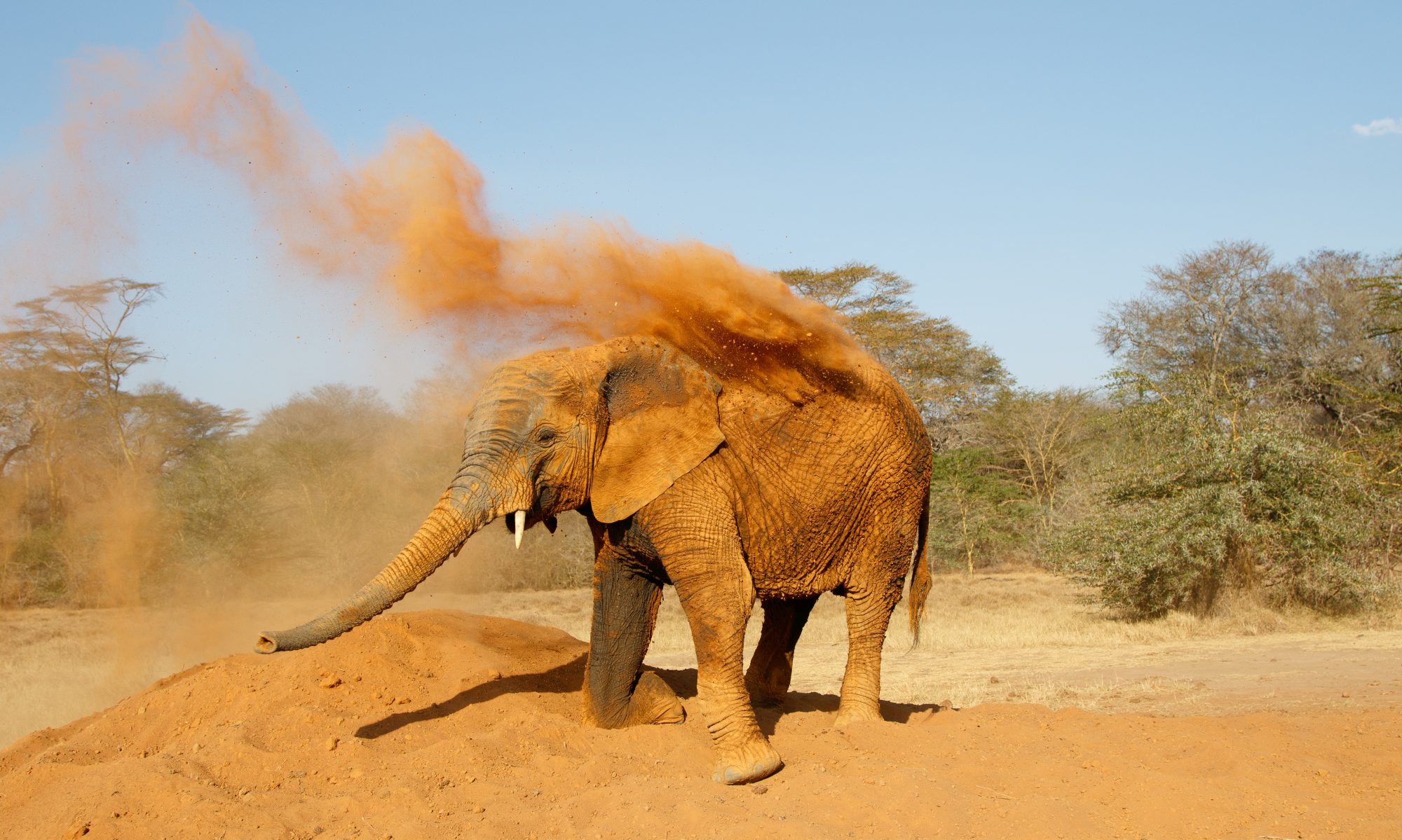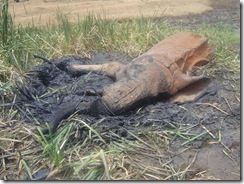By Emma Brennand
Earth News reporter
![]()

Can elephants anticipate risky behaviour?
Elephants that invade farmers‘ crops have higher levels of stress hormones.
Scientists found high levels of glucocorticoid metabolites in dung collected from crop raided fields.
That suggests the African elephants were under high physiological stress before the crop raid, researchers say in the journal Animal Conservation.
Elephants are intelligent creatures and this discovery could show their ability to anticipate the potential risks involved in raiding farmers‘ crops.
The study also supports previous research showing that offending elephants tend to be sub-adult and adult males.
![]()
![]() Conflict resulting from a crop raiding event would be quite stressful to both the elephants and the people involved
Conflict resulting from a crop raiding event would be quite stressful to both the elephants and the people involved ![]()
Elephant researcher Marissa Ahlering
In Kenya, elephants are not confined to national parks or reserves. As they wander, they often come across farm crops that they raid for food such as maize or potatoes.
Researchers from the University of Missouri, Columbia and African Conservation Centre, Nairobi, Kenya collected dung samples from elephants involved in five crop raids and from the two closest protected areas for comparison, Amboseli National Park and Maasai Mara National Reserve.
The dung samples were analysed to determine the age, sex and level of the stress hormone in reserve elephants compared to the crop raiding parties.
"The crop raiding elephants had high levels of stress hormones, and significantly higher stress hormone levels than the Amboseli elephants, explains lead researcher Marissa Ahlering.
"However, the crop raiders did not show a significant difference from Maasai Mara primarily because of the increased variability seen in the dung from Maasai Mara elephants."

Sub-adult male elephants are among the main offenders
The variation in the hormone levels in the Maasi Mara elephants may indicate that they were actively crop raiding beyond the boundaries of the park in the 30 hours before the samples were collected.
The Maasi Mara reserve is surrounded by agricultural land providing ample opportunity for elephants to forage in these agricultural fields. The researchers suggest that this, in addition to the increase in human and vehicle traffic in the area, may indicate a generally higher state of stress in Maasi Mara elephants.
Crop raiding is likely to be stressful for elephants because they are often chased and attacked during the raid.
Additionally, animals with higher levels of stress hormones can have increased aggression leading to an increase in confrontations with local communities.
![]()
at our results. I would expect that the conflict resulting from a crop raiding event would be quite stressful to both the elephants and the people involved," explains Dr Ahlering.
The glucocorticoid metabolite levels in the collected dung reflect an average of levels over the previous 30 hours, the time it takes for food to pass through an elephant’s stomach.
"It is impossible to determine from our samples whether the elevated glucocorticoid levels associated with crop raiding were due to the stress of raiding or were one of the factors driving the behaviour," says Dr Ahlering.
"With intelligent, social animals, such as elephants, it is also plausible that glucocorticoids could become elevated before raiding crops if elephants are able to anticipate the risk involved in such behaviour."
Avoiding conflict
Crop raiding causes significant economic damage, with many farmers resorting to shooting, spearing and poisoning raiding elephants in order to protect their livelihoods and families.
Many conservation organisations including the African Conservation Centre are exploring innovative ways of deterring elephants from crops including electric fences, early warning systems, guards, capsicum grease and bee-hive fences.
Dr Ahlering and her colleague’s hope that their findings will help establish why elephants raid crops and determine how to reduce the occurrence of these human-elephant conflicts.
Source: http://news.bbc.co.uk/earth/hi/earth_news/newsid_9283000/9283553.stm


